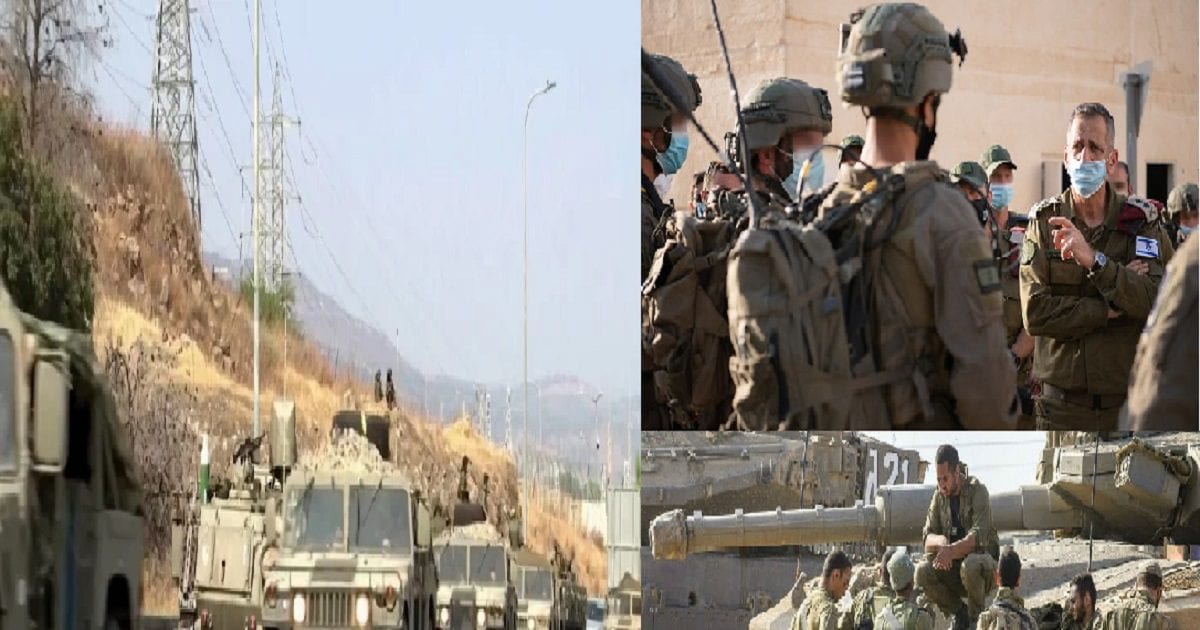New Delhi: Israel is mobilizing its troops for a ground attack on Gaza. The public and national security establishment in Israel are demanding retaliation for the attacks by Hamas terrorists, which took the lives of more than 1,000 Israelis. But Gaza’s dense population, complex underground network of tunnels and the threat of Israelis, Americans and others being taken hostage make a ground offensive appear a difficult task at present.
Former US Defense Secretary and CIA Director Leon Panetta said on Bloomberg Television’s ‘Balance of Power’ program on Tuesday, ‘The problem is that once we enter Gaza, it is basically a house-to-house fight. And hence one may have to pay a heavy price for it. But on the other hand, I think it is very clear that Israel has decided that they have to crush Hamas in Gaza.
Israel’s ground offensive in the Gaza Strip will cause huge losses to both sides and will raise the question whether Israel can prepare an exit strategy from the conflict. It would also spill over into the Middle East, threatening Israel’s fragile rapprochement with its Arab neighbors and increasing the risk that the conflict will escalate into a broader regional war. A US official said what happens after the offensive could be similar to the 2004 Battle of Fallujah in Iraq, which involved bloody street-by-street fighting.
Hamas’ resistance in Gaza against Israeli forces could be dire
Hamas’s resistance in Gaza against Israeli forces could be formidable, especially if neighboring countries provide reinforcements, according to the official, who spoke on condition of anonymity to discuss the sensitive matter. Israel has not announced whether it will send troops to Gaza, but Prime Minister Benjamin Netanyahu has promised that ‘what we do to our enemies in the coming days will have an impact for generations.’ The developments on the ground also show that Israel is planning something big. He is bombing Gaza from air, land and sea.
The Israeli army is building a base next to the Gaza Strip to accommodate thousands of soldiers, as convoys of Israeli tanks move towards the area. The country has already mobilized 300,000 reservists – the most in its history. Israeli military spokesman Richard Hecht told reporters on Tuesday, ‘Israel is going to respond in a very serious and aggressive manner. There will be more loss of life and property.
Gaza is a very large area to occupy and a lot of people live in it
Part of the growing perception that Israel will launch a ground offensive depends on the limits of the air war in Gaza. Air strikes are unlikely to succeed in clearing the tunnels, underground weapons stores and smuggling routes that made Saturday’s attack possible. Retired US Army four-star General Keith Alexander, who was the director of the National Security Agency, said – ‘At some point they (Israeli forces) will have to go inside (Gaza Strip). They can perform limited operations. But it is a very large area to occupy and a lot of people live in it.
Street-to-street fighting in Gaza, where two million residents are packed into an area twice the size of Washington, DC, is likely to result in heavy civilian casualties. Arab officials fear that images of dead civilians could provoke a backlash among the Arab public, putting pressure on their governments to sever ties with Israel. “The longer the occupation goes on, the more support you will see for Israel and the more pressure you will see on Arab states from their populations,” said William Asher, a former senior intelligence service official at the Central Intelligence Agency and an expert on Middle East affairs. . This is likely to turn into a political and PR crisis.
Threat to people held hostage by Hamas
Hamas captured many Israeli and foreign civilians, from children to elderly women, during its attack on the morning of 7 October. Hamas has said it is prepared to kill a hostage whenever Israel attacks civilian homes in Gaza without warning. If the Israeli army enters the Gaza Strip then the lives of these prisoners will also be in danger. There is also a serious danger of this war escalating into a multilateral conflict. Israel has already seen rocket attacks from Lebanon, raising the possibility of a multilateral war and wider regional conflict if it responds with military force.
On top of all this, there is a possibility of Iran also joining this war. “The massacre and mass murder of the people of Gaza will bring a great disaster on Israel,” Iran’s supreme leader Ayatollah Ali Khamenei said at a ceremony on Tuesday. US generals have warned Iran not to get involved and have sent their largest aircraft carrier, the USS Gerald R. Ford has sent.
Israel withdrew its army from Gaza in 2005
There is also the problem of what will happen after the attack. There is no guarantee of a durable political solution with military action. Israel withdrew ground troops from Gaza in 2005. Because the previous occupation of this area had proved very costly. Yossi Kuperwasser, a former top Israeli military intelligence official, said of the terrorists, ‘The end will come when they accept an arrangement in which they will give up any thoughts of carrying out terrorist attacks in the future. ‘When the Israeli population understands what it means to live next to Hamas, they are willing to pay almost any price to stop living next to Hamas.’
